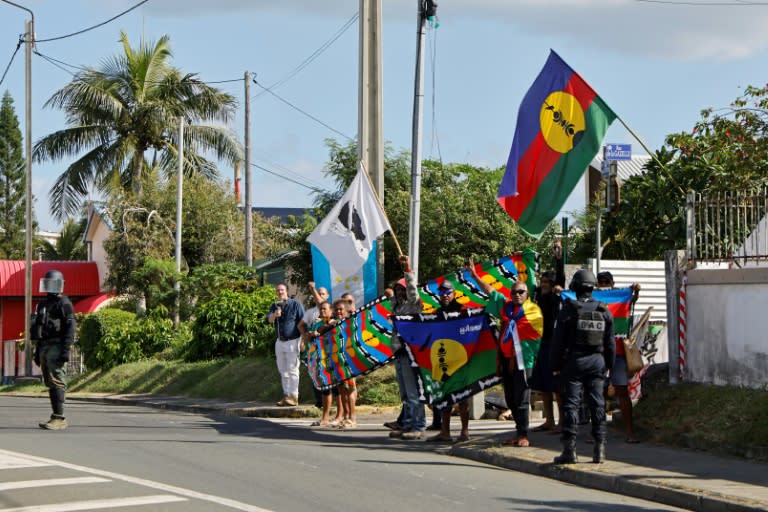State of emergency lifted in New Caledonia

France on Tuesday lifted a state of emergency in its Pacific territory of New Caledonia but is maintaining a curfew and sending hundreds of paramilitary reinforcements after two weeks of unrest in which seven people died and hundreds were injured.
The French presidency said restrictions had been eased to let the main pro-independence FLNKS party hold meetings and for local representatives to try to get road barricades removed.
Paris enforced the state of emergency after riots erupted over French plans to reform voting rights in the territory. Several hundred police and military reinforcements have already been sent to New Caledonia.
Authorities said another 480 paramilitary gendarmes would leave France for the territory "within hours". A night curfew from 6:00 pm to 6:00 am and a ban on alcohol sales will remain, the French government office in New Caledonia said.
While the archipelago has been quieter, some disturbances were reported in Vallee-du-Tir district of the main city Noumea. There have been nearly 500 arrests since the unrest started.
Long queues of traffic have built up in daylight hours but many roads, including to the international airport, are still closed with hundreds of burned out cars. The airport is to remain closed until June 2. Authorities said 600 police would be used to clear access to the Medipole hospital.
The lifting of the blockades is "the necessary condition for the opening of concrete and serious negotiations", the French presidency said in a statement, which announced the lifting of the state of emergency from 5:00 am Tuesday (1800 GMT Monday).
President Emmanuel Macron flew to the Pacific archipelago on Thursday in a bid to defuse the crisis.
The first French tourists were evacuated Saturday from Noumea aboard military aircraft headed for Australia and New Zealand. Australia and New Zealand had already begun repatriating their nationals on Tuesday.
In total, around 3,500 troops have been deployed to the archipelago, where two police have died.
- Possible referendum -
New Caledonia has been ruled from Paris since the 1800s, but many indigenous Kanaks resent France's power over their islands and want fuller autonomy or independence.
France is planning to give voting rights to thousands of non-indigenous long-term residents, something Kanaks say would dilute the influence of their votes.
Macron pledged during his lightning trip to New Caledonia that the planned voting reforms "will not be forced through".
"Violence should never be allowed to take root," Macron said at the end of his visit.
The CCAT pro-independence group organising the protests has not called off the roadblocks but offered to ease the chaos so that fuel and medicines could be delivered.
The FLNKS party reiterated on Saturday its demand for the withdrawal of the voting reforms after meeting with Macron.
bur-dhw/tw/yad

 Yahoo News
Yahoo News 